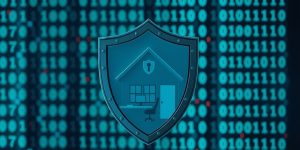In today’s digital age, cybersecurity is a crucial aspect for small businesses to protect their sensitive data and prevent cyber threats. Implementing the right cybersecurity solutions can help safeguard your business from potential risks and breaches. Here are 5 essential cybersecurity solutions that every small business should consider:
Key Takeaways
- Firewalls act as the first line of defense against cyber threats by monitoring and controlling incoming and outgoing network traffic.
- Antivirus software helps detect and remove malicious software and viruses that can compromise your business data.
- Multi-factor authentication adds an extra layer of security by requiring users to provide multiple forms of verification to access accounts and systems.
- Data encryption tools ensure that sensitive information is encrypted and secure, making it harder for unauthorized users to access and steal data.
- Security awareness training educates employees on best practices and protocols to prevent cyber attacks and protect company assets.
1. Firewalls
Firewalls serve as a critical first line of defense in a small business’s cybersecurity strategy. They act as a barrier between your secure internal network and untrusted external networks such as the internet. A firewall monitors incoming and outgoing network traffic and decides whether to allow or block specific traffic based on a defined set of security rules.
Firewalls can be hardware-based, software-based, or a combination of both. Here are some key functions they perform:
- Inspecting data packets and determining their legitimacy
- Preventing unauthorized access to network resources
- Blocking potentially harmful traffic
It is essential for small businesses to configure their firewalls properly to ensure maximum protection against cyber threats.
To maintain an effective firewall, it is important to regularly update its rules and firmware to protect against the latest threats. Additionally, businesses should consider the following practices:
- Establishing clear firewall policies and procedures
- Training staff on how to manage and monitor firewall configurations
- Conducting regular security audits to assess firewall effectiveness
2. Antivirus Software
In the digital age, antivirus software is a fundamental layer of defense for small businesses. It serves as the first line of protection against various types of malware, including viruses, worms, and trojan horses. Regular updates and scans are crucial to ensure that the software can recognize and neutralize the latest threats.
- Ensure that all devices are equipped with antivirus software.
- Schedule regular scans to detect and remove threats.
- Keep the software updated to the latest version.
Antivirus solutions are not just about detecting threats; they also play a significant role in prevention. By blocking suspicious activities and quarantining potential threats, they help maintain the integrity of business systems.
While antivirus software is essential, it is not sufficient on its own. Website security is crucial to prevent data breaches and protect online transactions. Secure hosting, SSL certificates, and employee training are essential measures against malware and hackers.
3. Multi-Factor Authentication
In the digital age, the importance of cybersecurity for small enterprises cannot be overstated. Multi-factor authentication (MFA) is a critical security measure that adds an extra layer of protection beyond just a password. By requiring multiple forms of verification, MFA significantly reduces the risk of unauthorized access to sensitive data.
Multi-factor authentication typically involves a combination of something the user knows (like a password), something the user has (such as a mobile device), and something the user is (for example, a fingerprint). Implementing MFA can be straightforward, and here are some common methods:
- SMS or email codes
- Authentication apps
- Biometric verification
- Hardware tokens
Small businesses are particularly vulnerable to cyber threats, making robust security measures like MFA essential. While no system can be completely foolproof, MFA provides a substantial barrier against potential breaches.
Key solutions for small businesses also include fostering an awareness culture and having an incident response plan in place. This proactive approach to cybersecurity can help mitigate the risks associated with cyber attacks.
4. Data Encryption Tools
In the digital age, where data breaches are increasingly common, data encryption is a vital layer of security for small businesses. Encryption tools scramble data, making it unreadable to unauthorized users. Even if data is intercepted or accessed by cybercriminals, without the correct decryption key, the information remains secure and unintelligible.
When selecting encryption tools, consider the following:
- The type of data you need to encrypt (at rest, in transit, etc.)
- The level of encryption required (128-bit, 256-bit, etc.)
- Compatibility with your existing systems
- Ease of use for employees
It is essential for small businesses to not only implement encryption tools but also to ensure that employees understand their importance. Regular training and updates can help maintain a high level of data protection.
Understanding the motivations behind cyber attacks and the impact on businesses is crucial. Implementing strong authentication measures alongside encryption can safeguard against financial losses, reputation damage, and operational disruptions.
5. Security Awareness Training
In the realm of cybersecurity, the human element can often be the weakest link. Security awareness training is essential in equipping your team with the knowledge to identify and prevent potential security threats. Regular training sessions can dramatically reduce the risk of breaches caused by human error.
Security awareness should be an ongoing process, not a one-time event. It is crucial to keep the training up-to-date with the latest security practices and threats. A well-informed staff is your first line of defense against cyber attacks.
By fostering a culture of security, businesses can ensure that their employees are vigilant and proactive in protecting the company’s digital assets.
Here are some key components of an effective security awareness program:
- Regular training updates
- Phishing simulation exercises
- Password management education
- Reporting procedures for suspicious activities
In today’s digital age, security awareness training is not just a recommendation; it’s a necessity. Equip your team with the knowledge to defend against cyber threats with our comprehensive training programs at WebsiteSecurity.net. Don’t wait for a security breach to realize the importance of preparedness. Visit our website now to learn more and safeguard your business’s digital future.
Conclusion
In conclusion, implementing these 5 essential cybersecurity solutions can significantly enhance the security posture of small businesses. By prioritizing cybersecurity measures such as employee training, strong password policies, regular software updates, data encryption, and network security, small businesses can better protect their sensitive information and mitigate the risks of cyber threats. It is imperative for small businesses to invest in cybersecurity to safeguard their operations, reputation, and customer trust in today’s digital landscape.







